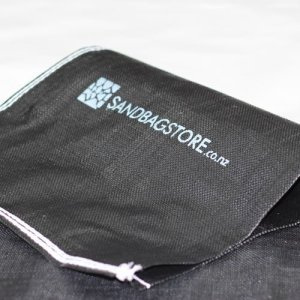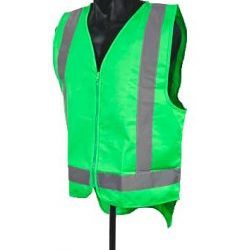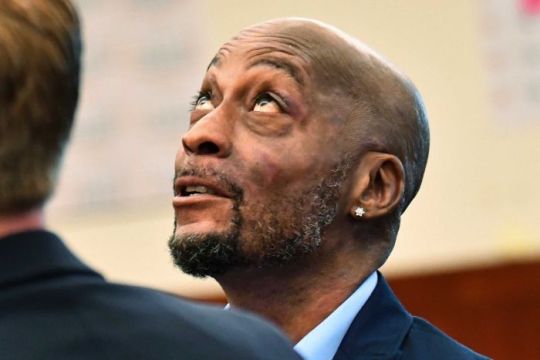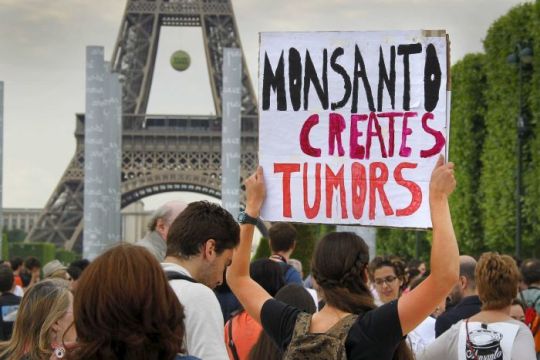#Hessian Bag Adelaide
Explore tagged Tumblr posts
Link
Living Jute has come up with a variety of handmade bags to choose from for all. They are trendy, multifunctional, and have enough space for carrying essential belongings. It has double handles, a main zip to keep things secure, and a side zip. Each bag comes with intricate details which add to the personality. No two bags are the same. Each has unique detail work on them. These handmade bags are all-purpose unisex bags. They are made in Bangladesh by artists who have been involved in this for generations. They are suitable for everyday use. All of these bags come in various colors, designs, and sizes. These bags are a perfect blend of functionality and style.
#Handmade bag Adelaide#Hessian Bag Adelaide#School Bags Adelaide#Laptop Bags Adelaide#Personalised Uni Bag
0 notes
Text
Sandbags | Bulk Bags | Safety Vests Australia
Sandbags | Bulk Bags
assortment of Sandbag| Bulk Bags otherwise called Builder Bags or Bulka Bags or FIBC. Our packs are accessible A Sandbag is a sack produced using hessian, polypropylene or different materials. The sack is loaded up with sand and utilized for flood and disintegration control Bulk Bags Australia, Are you searching for Bulka Bags Suppliers in Australia? We are producer and will give specially crafted mass sacks concurring your needs.Bulk Handling Australia (BHA) is a main provider of Bulk Bags, FIBCs, Bag Pallets, Woven Bags and Sacks, Container Liners and modern bundling solutions.Find Gorilla 1000kg Bulk Lifting Bag at Bunnings. Visit your neighbourhood store for the amplest scope of products.SAND BAGS and AGGREGATE SOIL Supplies · Bulka Bag White Brickie Sand $90 Incl GST ·

Bulk Bag Yellow Brickie Sand $80 Incl GST · Bulka Bag Newcastle/Sydney Sand $85 .Bulk Bags are great for those occasions when ordinary mass transportation or limited scope bundling are unreasonable arrangements. Bulka packs are accessible in both single and mutli trip use. As the name recommends, a solitary excursion Bulka pack is intended to be utilized once. Mass sacks, prominently known as adaptable middle mass compartments or FIBCs, are a sort of holder that has broad modern applications.BULK BAGS EXPERTISE Our packs are completely consistent with AS3668-1989 and provided to an assorted scope of ventures across Australia and around the world.View our scope of items in Sand Bags/Sand Bag Filler. These incorporate 20 kg Bag Yellow Brickies Sand, Sand Washed 20kg.Brickies Sand 1 ton mass packs pickup or conveyed to site, Perth. Yellow brickies sand for clearing, mortar blend, jointing concrete and more.Halsted Bag offers a full scope of woven polypropylene sacks mass, network packs, discount barricades and agrarian sacks from top makers and suppliers.If you need to get sand, soils, rocks, mulch, bark or rock conveyed by our group at Apollo Landscaping Supplies, then, at that point, mass packs are best for this.We give Bulk Bags , Bulk bundling items and FIBCs ( Bulk Bags ) to all ventures. Go ahead and purchase our mass items online at this point.
Safety Vests Australia
Hello Vis Vests and Safety Vests Australia are a fundamental piece of the cutting edge work environment. Fixing things such that your staff and guests are all around found in your place of business.Browse New Zealand's biggest scope of Adults and Children Safety Vests. Expert Safety Vest printing accessible. Security protective caps, wellbeing glasses and more Buy Workwear, safetywear, work shorts, work gasp, security shirts, Hi Vis Online at Budget Safetywear - Australia's biggest Workwear shopping objective contribution Shop our wide scope of howdy vis and security vests at stockroom costs from quality brands. Request online for conveyance or Click and Collect at your closest Bunnings.Buy online high perceivability hey vis wellbeing vest Sydney for day and night the twice Melbourne, Brisbane, Adelaide, Perth, Australia.Coloured Vests are not endorsed for day use in Australia. Just Orange and Yellow vests satisfy the Australian Guideline for daytime use.

Get the best arrangements on Industrial Safety Vests. Shop with Afterpay on qualified things. Free conveyance and profits on eBay Plus things for Plus members.Investing in hello there vis security vests is one of the best approaches to expanding specialist perceivability, which can go far toward diminishing the gamble of ...Improve wellbeing in your work environment and update your representative workwear with our scope of High Visibility Vests. Shop on the web and save at Winc Australia.See our scope of value Hi Vis Safety Vests accessible at Elliotts Australia, the security search for dependable defensive workwear and hardware in Brisbane.Green Triangle Distributors gives Australia specially crafted wellbeing vests. Visit our website to see our reach and purchase great wellbeing vests online.Badger Australia has a wide scope of customized Printed Hi Vis Vest and Work Shirts Clothing on the web. Peruse our customized high perceivability vests and numerous Safety vests and defensive vests on special in Australia by the Packing Tape Shop. Huge investment funds. All orders more than $100 FREE conveyance. Peruse and purchase online at this point.
View our scope of items in Safety Vests. These incorporate HiVis Lime Zip Vest, HiVis Orange Zip Vest, HiVis Pink Velcro Vest.
Address :
6K Polaris Place, East Tamaki, Auckland 2013
Mon – Fri: 8:30a.m. – 4:30p.m.
Tel: 0-9-869 2467
0 notes
Text
Is Roundup the next asbestos?
By national regional and rural reporter Jess Davis Updated June 01, 2019 05:45:23

Photo: Monsanto is facing thousands of lawsuits claiming its product Roundup causes cancer. (Reuters: Mal Langsdon) It's been touted as the next asbestos and compared to the cover-ups by big tobacco companies last century, but agribusiness giant Monsanto insists Roundup doesn't cause cancer. Three US juries disagree, and the company is facing 13,400 plaintiffs who claim the most commonly used herbicide in the world is the reason they have non-Hodgkin's lymphoma. Key points:Roundup is the most commonly used herbicide in the world and its active ingredient is glyphosate Agribusiness giant Monsanto has lost three trials in the US over links between cancer and glyphosateIt's been ordered to pay out billions of dollars in damages to four cancer patients, with thousands more plaintiffs awaiting trial It's what's called a mass tort litigation, with lawsuits involving multiple plaintiffs against one defendant, in this case Monsanto, and involves multiple trials in different jurisdictions. Unlike a class action, injuries suffered by the plaintiffs in mass torts aren't always the same; they are usually similar but can be wider ranging and individualised. In the US, mass torts against pharmaceutical companies are the most common, but other well-known mass torts include cases like asbestos. So far Monsanto has been ordered to pay four cancer patients, with the most recent verdict ordering a payout of $US2 billion ($2.89 billion). All the cases are expected to be appealed. Acting with malice Professor Richard Stevens from the University of Connecticut's School of Medicine said the key point in the trials had not been about proving that glyphosate caused cancer. "The really important part of this trial is the misbehaviour of Monsanto, a company that did everything wrong in terms of how to handle a potential hazard.

Photo: A jury ordered Monsanto to pay DeWayne Johnson compensatory damages last August. (AP: Josh Edelson) "It's something like the tobacco companies, how they tried to stifle any criticism at all of their product." Professor Stevens has spent his career researching why people get cancer and said it was unclear whether glyphosate had the capacity to cause cancer in humans. Following the latest trial, Brent Wiessner, the lawyer for the plaintiffs, also highlighted the importance of Monsanto's behaviour in the jury's verdict. "We had a unanimous verdict in Johnson, unanimous verdict in Hardeman and this verdict [the Pilliods] was essentially unanimous. "We had 100 per cent, 12 jurors on all the important questions, specifically, 'Did Monsanto act with malice?' Every single juror agreed." The plaintiffs' lawyers have relied on what are called the Monsanto Papers: millions of internal documents that reveal the company's long-running aggressive campaign to protect Roundup. Can a jury decide on science? Monsanto's case throughout the three trials has been simple: it has repeatedly argued that the science says glyphosate is safe, as do regulators across the world. Rakesh Kilaru, the lawyer for Bayer, Monsanto's parent company, said he strongly disagreed on the finding that Monsanto had acted with malice and with the notion that the science was uncertain. "We're disappointed in the verdict to be sure, but I think it's very early in the litigation. "There have been three trials, but none of the cases have proceeded to a final judgement. There are still appeals in all of the cases." The focus of Monsanto's appeals will be on what science was presented to the juries and if it should have been allowed. "I think across the cases there's a concern that the methodology they're using is a methodology the jury should not even be hearing in the first place," Mr Kilaru said. "Because it involves picking and choosing certain parts of the science, rather than looking at the whole picture." The Monsanto trials have raised the question of whether a jury can or should decide on science. Proving that glyphosate has caused a specific person's cancer is difficult; in fact, Professor Stevens said "specific causation" for cancer could almost never be proven. Despite that, he believed product litigation cases were important. "It's a complicated kind of a democracy. We don't have perfect knowledge of anything," Professor Stevens said. "What has been proven in science or in law can always be unproven with new evidence or new experts." The next asbestos?

Photo: For decades, James Hardie used hessian bags to transport asbestos. (7.30 Report) Professor Stevens believed there were two likely scenarios for the future of glyphosate and its maker Monsanto. The first was that it could follow the path of asbestos, which is now regarded as causing lung cancer. "The Johns Manville Company back in the '60s marketed asbestos products [as] the miracle product, it doesn't wear out, it doesn't burn, [has a] high insulation factor," Professor Stevens said. "They've had so many lawsuits, Johns Manville's been run out of business." The second option is that it goes the way of saccharine, an artificial sweetener that in the 1970s was thought to cause bladder cancer but that was later disproven and the product is still widely used. Winning over the public

Photo: Bayer is taking out ads in major US newspapers to combat the negative media attention. (Supplied) Whether the weedkiller could be responsible for a person's cancer has become a contentious question around the world, in both science and politics. And it is one that isn't likely to be answered anytime soon, with the legal battles in the US expected to rage on for years. In the meantime, Bayer faces the problem of public perception. It has prompted the company to take out advertisements in several US newspapers, including the Wall Street Journal and the New York Times. Not only that, but its value has plummeted. Since the first verdict last August, Bayer has seen a drop in its share price of more than 40 per cent, with predictions it could face more than $US5 billion in settlements. Bayer would not comment on how much the cases have cost the company so far. More trials to come So far, two of the verdicts against Monsanto have been in the Californian state court and one in the federal court. There are three core areas of litigation unfolding: there is a set of cases in the Californian state court, there is a set of proceedings in the federal court where basically all the cases filed throughout the country have been put together and consolidated in front of one judge, and there is a set of cases that has been filed in the Missouri state court. The next case to be heard will be in August, in the Missouri state court at St Louis, where Monsanto is based. Despite Bayer's losses in the first three trials, Mr Kilaru said the company would continue to focus on science as its key defence. "In St Louis, Monsanto is located there and so there may be some more witnesses who testify, but I think that exactly who testifies and when is something we can't really know until we get to trial," he said. But as the first three trials have shown, juries aren't convinced by Monsanto's version of the science and have been more swayed by the evidence of its corporate misbehaviour. External Link:The secret tactics Monsanto used to protect Roundup, its star product | Four Corners Topics:agricultural-crops,agricultural-chemicals,rural,agriculture,chemicals-and-pharmaceuticals,law-crime-and-justice,melbourne-3000,sydney-2000,brisbane-4000,perth-6000,adelaide-5000,united-states First posted June 01, 2019 05:00:00 http://www.abc.net.au/news/2019-06-01/is-roundup-the-next-asbestos/11167866
0 notes
Text
Is Roundup the next asbestos?
By national regional and rural reporter Jess Davis Updated June 01, 2019 05:45:23

Photo: Monsanto is facing thousands of lawsuits claiming its product Roundup causes cancer. (Reuters: Mal Langsdon) It's been touted as the next asbestos and compared to the cover-ups by big tobacco companies last century, but agribusiness giant Monsanto insists Roundup doesn't cause cancer. Three US juries disagree, and the company is facing 13,400 plaintiffs who claim the most commonly used herbicide in the world is the reason they have non-Hodgkin's lymphoma. Key points:Roundup is the most commonly used herbicide in the world and its active ingredient is glyphosate Agribusiness giant Monsanto has lost three trials in the US over links between cancer and glyphosateIt's been ordered to pay out billions of dollars in damages to four cancer patients, with thousands more plaintiffs awaiting trial It's what's called a mass tort litigation, with lawsuits involving multiple plaintiffs against one defendant, in this case Monsanto, and involves multiple trials in different jurisdictions. Unlike a class action, injuries suffered by the plaintiffs in mass torts aren't always the same; they are usually similar but can be wider ranging and individualised. In the US, mass torts against pharmaceutical companies are the most common, but other well-known mass torts include cases like asbestos. So far Monsanto has been ordered to pay four cancer patients, with the most recent verdict ordering a payout of $US2 billion ($2.89 billion). All the cases are expected to be appealed. Acting with malice Professor Richard Stevens from the University of Connecticut's School of Medicine said the key point in the trials had not been about proving that glyphosate caused cancer. "The really important part of this trial is the misbehaviour of Monsanto, a company that did everything wrong in terms of how to handle a potential hazard.

Photo: A jury ordered Monsanto to pay DeWayne Johnson compensatory damages last August. (AP: Josh Edelson) "It's something like the tobacco companies, how they tried to stifle any criticism at all of their product." Professor Stevens has spent his career researching why people get cancer and said it was unclear whether glyphosate had the capacity to cause cancer in humans. Following the latest trial, Brent Wiessner, the lawyer for the plaintiffs, also highlighted the importance of Monsanto's behaviour in the jury's verdict. "We had a unanimous verdict in Johnson, unanimous verdict in Hardeman and this verdict [the Pilliods] was essentially unanimous. "We had 100 per cent, 12 jurors on all the important questions, specifically, 'Did Monsanto act with malice?' Every single juror agreed." The plaintiffs' lawyers have relied on what are called the Monsanto Papers: millions of internal documents that reveal the company's long-running aggressive campaign to protect Roundup. Can a jury decide on science? Monsanto's case throughout the three trials has been simple: it has repeatedly argued that the science says glyphosate is safe, as do regulators across the world. Rakesh Kilaru, the lawyer for Bayer, Monsanto's parent company, said he strongly disagreed on the finding that Monsanto had acted with malice and with the notion that the science was uncertain. "We're disappointed in the verdict to be sure, but I think it's very early in the litigation. "There have been three trials, but none of the cases have proceeded to a final judgement. There are still appeals in all of the cases." The focus of Monsanto's appeals will be on what science was presented to the juries and if it should have been allowed. "I think across the cases there's a concern that the methodology they're using is a methodology the jury should not even be hearing in the first place," Mr Kilaru said. "Because it involves picking and choosing certain parts of the science, rather than looking at the whole picture." The Monsanto trials have raised the question of whether a jury can or should decide on science. Proving that glyphosate has caused a specific person's cancer is difficult; in fact, Professor Stevens said "specific causation" for cancer could almost never be proven. Despite that, he believed product litigation cases were important. "It's a complicated kind of a democracy. We don't have perfect knowledge of anything," Professor Stevens said. "What has been proven in science or in law can always be unproven with new evidence or new experts." The next asbestos?

Photo: For decades, James Hardie used hessian bags to transport asbestos. (7.30 Report) Professor Stevens believed there were two likely scenarios for the future of glyphosate and its maker Monsanto. The first was that it could follow the path of asbestos, which is now regarded as causing lung cancer. "The Johns Manville Company back in the '60s marketed asbestos products [as] the miracle product, it doesn't wear out, it doesn't burn, [has a] high insulation factor," Professor Stevens said. "They've had so many lawsuits, Johns Manville's been run out of business." The second option is that it goes the way of saccharine, an artificial sweetener that in the 1970s was thought to cause bladder cancer but that was later disproven and the product is still widely used. Winning over the public

Photo: Bayer is taking out ads in major US newspapers to combat the negative media attention. (Supplied) Whether the weedkiller could be responsible for a person's cancer has become a contentious question around the world, in both science and politics. And it is one that isn't likely to be answered anytime soon, with the legal battles in the US expected to rage on for years. In the meantime, Bayer faces the problem of public perception. It has prompted the company to take out advertisements in several US newspapers, including the Wall Street Journal and the New York Times. Not only that, but its value has plummeted. Since the first verdict last August, Bayer has seen a drop in its share price of more than 40 per cent, with predictions it could face more than $US5 billion in settlements. Bayer would not comment on how much the cases have cost the company so far. More trials to come So far, two of the verdicts against Monsanto have been in the Californian state court and one in the federal court. There are three core areas of litigation unfolding: there is a set of cases in the Californian state court, there is a set of proceedings in the federal court where basically all the cases filed throughout the country have been put together and consolidated in front of one judge, and there is a set of cases that has been filed in the Missouri state court. The next case to be heard will be in August, in the Missouri state court at St Louis, where Monsanto is based. Despite Bayer's losses in the first three trials, Mr Kilaru said the company would continue to focus on science as its key defence. "In St Louis, Monsanto is located there and so there may be some more witnesses who testify, but I think that exactly who testifies and when is something we can't really know until we get to trial," he said. But as the first three trials have shown, juries aren't convinced by Monsanto's version of the science and have been more swayed by the evidence of its corporate misbehaviour. External Link:The secret tactics Monsanto used to protect Roundup, its star product | Four Corners Topics:agricultural-crops,agricultural-chemicals,rural,agriculture,chemicals-and-pharmaceuticals,law-crime-and-justice,melbourne-3000,sydney-2000,brisbane-4000,perth-6000,adelaide-5000,united-states First posted June 01, 2019 05:00:00 http://www.abc.net.au/news/2019-06-01/is-roundup-the-next-asbestos/11167866
0 notes
Video
tumblr
Living Jute is one of the trusted eco-friendly bag shop in Australia. By 2020, my vision to build a platfrom connecting Bangladesh and Australia culture came to life. Living Jute is committed to sustainable change. We are more than a company that sells eco-friendly bags (although we do that very well); we are a conscious, environmentally-minded collective.
#Eco-Friendly Bags#Eco-Friendly Bag Adelaide#Personalised Bag Adelaide#Office Bag Adelaide#Promotional Bags Adelaide#Promotional Bags Sydney#Promotional bags Melbourne#Promotional bags Brisbane#Promotional Bags Online#Promotional Bags Australia#jute bags shop adelaide#Hessian Bag Adelaide#Uni Bag Adelaide#uni bag#uni laptop bag adelaide#jute bags australia#Uni Bag Australia#jute grocery bags australia#red cotton tote bag
0 notes